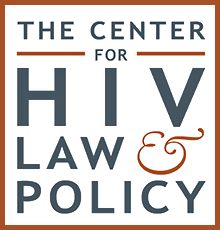Overview
Nebraska law contains one sentence enhancement provision which criminalises perceived HIV ‘exposure’ in limited circumstances. However, we are not aware of any prosecutions of people living with HIV under this law or under any general criminal laws.
The sentence enhancement law, introduced in 2011, forms part of a general criminal offence criminalising anyone who ‘knowingly and intentionally’ strikes a public safety officer with a bodily fluid. This is ordinarily a misdemeanour but is increased to a felony when committed by people living with HIV or hepatitis and where the fluid makes contact with the officer’s eyes, mouth or skin, tripling the maximum penalty from one year to up to three years’ imprisonment. A range of fluids are covered by the law, specifically blood, semen, urine, saliva, mucus, vomit, and faeces, most of which do not contain HIV, nor is it remotely likely that “assault” to any of these “bodily fluids” would result in transmission. There is no requirement for transmission to occur.
The law also permits officers who come into contact with fluids to appeal to a judge for the accused to undergo testing for HIV or hepatitis. Similarly, HIV testing can also be ordered for those convicted of certain sexual offences. In both cases the results of these tests can be shared with the alleged victim of the offences.
Health officials in Nebraska also have legal powers to order quarantine and isolation for people with sexual transmitted infections, including HIV.
Aside from the 2011 introduction of the assault with bodily fluids law, there have been at least two attempts to introduce a law criminalising HIV ‘exposure’ more broadly. These attempts in 2004 and 2009 both failed.
For a detailed analysis of HIV criminalisation in Nebraska, as well as all other US states, see the Center for HIV Law and Policy report, HIV Criminalisation in the United States: a Sourcebook on State and Federal HIV Criminal Law and Practice.
Laws
Nebraska Statutes § 28-934
Assault with a bodily fluid against a public safety officer
(1) Any person who knowingly and intentionally strikes any public safety officer with any bodily fluid is guilty of assault with a bodily fluid against a public safety officer.
(2) Except as provided in subsection (3) of this section, assault with a bodily fluid against a public safety officer is a Class I misdemeanor.
(3) Assault with a bodily fluid against a public safety officer is a Class IIIA felony if the person committing the offense strikes with a bodily fluid the eyes, mouth, or skin of a public safety officer and knew the source of the bodily fluid was infected with the human immunodeficiency virus, hepatitis B, or hepatitis C at the time the offense was committed.
(4) Upon a showing of probable cause by affidavit to a judge of this state that an offense as defined in subsection (1) of this section has been committed and that identifies the probable source of the bodily fluid or bodily fluids used to commit the offense, the judge shall grant an order or issue a search warrant authorizing the collection of any evidence, including any bodily fluid or medical records or the performance of any medical or scientific testing or analysis, that may assist with the determination of whether or not the person committing the offense or the person from whom the person committing the offense obtained the bodily fluid or bodily fluids is infected with the human immunodeficiency virus, hepatitis B, or hepatitis C.
(5) As used in this section:
(a) Bodily fluid means any naturally produced secretion or waste product generated by the human body and shall include, but not be limited to, any quantity of human blood, urine, saliva, mucus, vomitus, seminal fluid, or feces; and
Further resources
Not all laws used to prosecute people living with HIV in this state are included on this page. For a comprehensive overview and analysis of HIV-related criminal and similar laws and policies, visit The Center for HIV Law and Policy
